CircuitMess Batmobile: Croatian Company Collab With Warner Bros
October 5, 2021 - CircuitMess Batmobile is the new DIY product made by a Croatian company which has made a name for itself by making products that promote STEM technology.
From ''do it yourself'' (DIY) videogame consoles, to DIY mobile phones, DIY DJ sets and much more, the Croatian company CircuitMess has well and truly made name for itself internationally.
Led by 22-year old entrepreneur Albert Gajšak, this company creates products which don't just provide fun, but also education about electronics and programming with hopes to popularise the STEM area (science, technology, engineering, and mathematics) for younger generations. With the need on the market growing ever larger, but with the lack of interest for the field, CircuitMess want to both entertain and direct kids to STEM and show that it isn't dull, nor does it have to be tough.
As with previous products which were supported by Kickstarter, a web platform where people can propose their ideas and get financial support their projects (through crowdfunding campaigns), and this is the case with their next big product: The Circuitmess Batmobile.
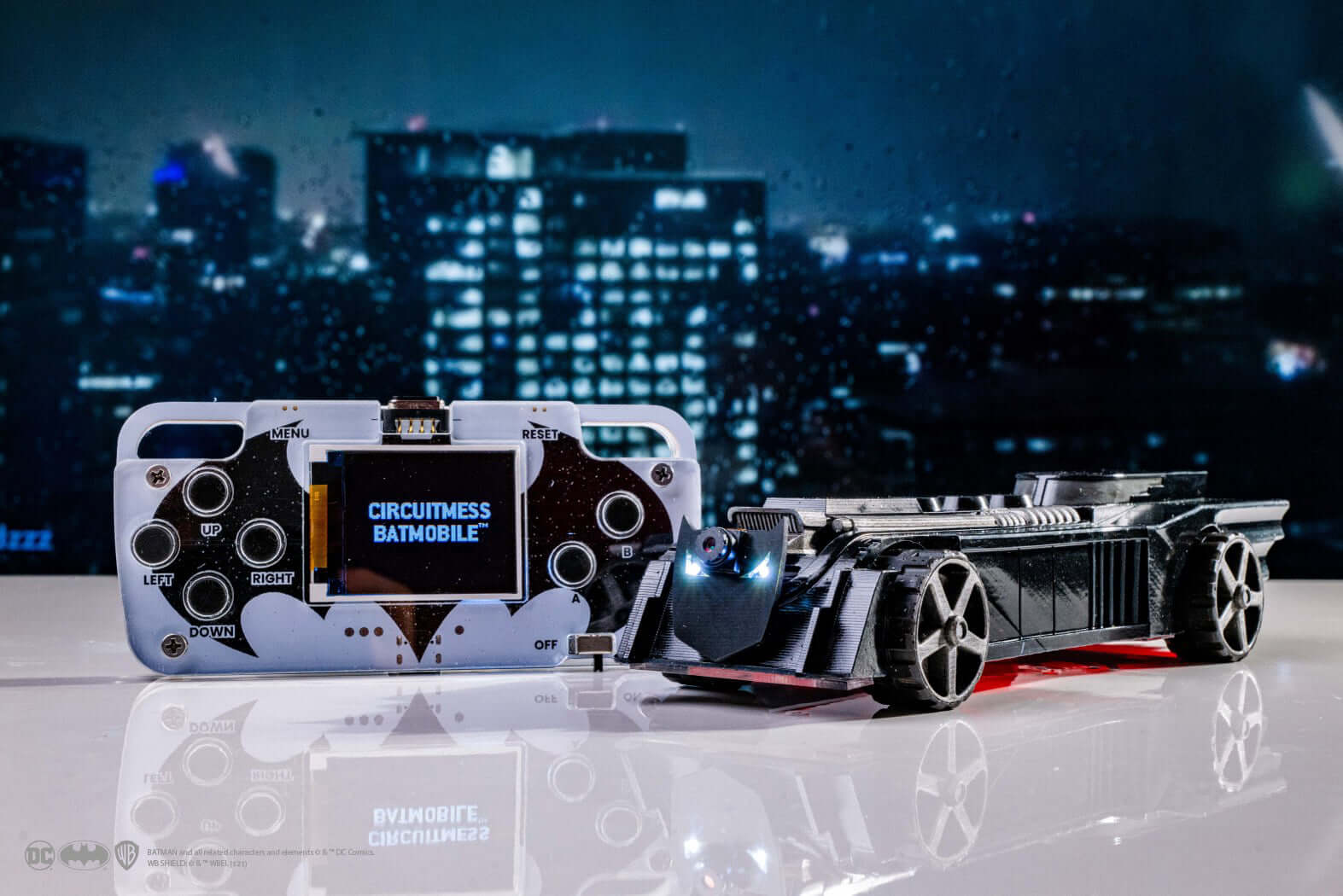 © CircuitMess
© CircuitMess
This new edition, a small robotic car that drives around autonomously using AI and machine learning was presented by Gajšak himself at a press conference at CircuitMess on October 5, just as the kickstarter campaign was officialy launched. The campaign will last until December 4, and at the time of writing this article, the very same day it started, the campaign had received am amazing 70,178 US dollars. This result with 476 backers in just a few hours is even more fantastic when you see that the initial goal was a mere 15,000 dollars. With 59 more days of the campaign still to go, things seem to be going in the right direction.
''The Circuitmess Batmobile has one camera, and a processor that will allow for machine learning so it can memorise visual cards or a ball (part of the package) and much more. Batman is a superhero who has no superpowers, instead, he has technology with which he saves Gotham. This is line with what we try to promote and show children. You can be like Batman, if you use your hands and learn,'' explained Gajšak at the press conference.
The work on the CircuitMess Batmobile lasted for around two years, and the project was pitched to and approved by none other than the globally famous and respected Warner Bros company. When asked about the design (black with a distinctive bat-head on the front), Gajšak mysteriously said they had various ideas for the design which will be recognised by Batman fans. A little later, he confirmed for TCN that their inspirations included the 1992 animated series and a ''Batman Rebirth'' comicbook from 2016.
''By landing this cooperation with Warner Bros, we hope to show that CircuitMess is no longer a small company,'' said Gajšak The company indeed grew with around 50 partners that distribute CircuitMess products worldwide either through webshops or in physical stores. Over 52,000 of their products have so far been sold globally, mostly in the USA, UK, New Zealand, Singapore and Australia.
Whether the Batmobile will be the coolest product made by CircuitMess is yet to be seen (although the kickstarter results look promising), but it's definitely the easiest product for the user to assemble so far. Suitable for kids over six years of age, this product has magnetic connectors and requires no soldering.
''People sometimes get scared when they need to solder our products because they worry that it could be dangerous or just for professionals. So, here we have magnetic connectors. We'll see how they will do and perhaps open up some room for more creativity in the future. So far, when a CircuitMess Product, for example, gives you instructions to build a game console, you have to end up building a game console. But when I was a kid and I played with Lego, I followed the instructions to some point, then I ended up building something completely different. With magnetic connectors, there's a chance for that, too,'' explained Gajšak.
However, the success of the Circuitmess Batmobile will determine whether or not magnetic connectors will be used in next products made by the company.
Even though the easiest DIY product (estimated to take 60 minutes to be built and then you're onto programming and playing), Gajšak pointed out it will not be boring for those who want more. An additional ''Inventor pack'' has more components and even more possibiliters are presented in the ''Ultimate pack'' for the pros.
Along with the excitment of presenting the CircuitMess Batmobile, Gajšak also used the press conference to point out the problem of crowdfunding in Croatia.
''We're using a mediator in the US for our kickstarter campaigns becuase we have no access to kickstarter in Croatia. Croatia is part of the EU so there's no reason for it to be that way,'' complained Gajšak, hoping to see change and the allowance for both CircuitMess and other entrepreneurs in the country to propose and get support for their projects with more ease.
Learn more about Croatian inventions and discoveries from Tesla to Rimac on our dedicated TC page.
For more about STEM technology in Croatia, follow TCN's dedicated page
Scope Project: Višnjan Observatory on STEM Popularization Mission
September 9, 2021 - The Višnjan Observatory and other relevant institutions are enrolled in the Scope Project. Under the motto "Science connects people", the goal is to popularise and improve the STEM area in Croatia.
When it comes to astronomy in Croatia, the Višnjan Observatory in Istria holds the top place as the best location to gaze up at the stars, and both the Croatian and international public seems to recognise that.
The work undertaken there speaks for itself, especially when it comes to events like discovering new asteroids, and people's willingness to support the cause is evident in a successful crowdfunding campaign earlier this year.
Since the end of October 2020, the observatory has been enrolled in the Scope Project, which under the motto of ''Science connects people'', aims to promote the STEM area.
''The goal of the project is to create a network of cooperation for all relevant actors in the goal of making encouraging the creation of an environment for the development and progress of the STEM area in the sense of strengthening capacities and cooperation of the civil society organisations, as well as common cooperation in shaping STEM area public policies,'' says the Višnjan Observatory's website.
Others the Višnjan Observatory cooperates in this project with include the Ruđer Bošković Institute (IRB), several faculties from Zagreb University (Faculty of Mechanical Engineering and Naval Architecture, Faculty of Architecture), the Carpe Diem Association for the creative and social development of kids and adults, the Croatian Interdisciplinary Society and many more. The project will last until October 28, 2023, on a budget of 3,599,107 kuna.
''The latest data clearly showcases the lack of students and experts in the STEM area. The need for activities in the STEM area is recognised in the National Strategy of education, science, and technology,'' says the Višnjan Observatory website, highlighting the need for this project.
With the already mentioned networking and collaboration in making policies, the plan of the Scope Project is to also survey public opinion, which will provide data for the higher scientific institutions to conduct research and to guide propositions for public policies.
Despite Croatia lacking experts and general interest in the STEM area, it is comforting to know that those interested in the area are indeed quite successful. Croatian scientists represented Croatia during the G20 summit as they participated in the first quantum communication, students achieved fantastic results during the informatics competition, and IRB scientists frequently make international scientific news with the dedicated work of their scientists (just to mention few examples).
Learn more about Croatian inventions and discoveries from Tesla to Rimac on our dedicated TC page.
For more about science in Croatia, follow TCN's dedicated page.
Best Faculty at Zagreb University: Faculty of Agriculture Scores Highest in NTU Ranking
May 11, 2021 -The oldest university in Croatia is the one in Zagreb, and the best faculty at Zagreb University is the Faculty of Agriculture, according to the NTU global ranking of 800 universities worldwide.
The quality of Zagreb University, according to the global NTU ranking conducted by the National Taiwan University, is in decline. On the list of 800 Universities worldwide, Zagreb University was ranked 478th best in the world, and in recent years it was levitating between 551st and 600th place. But, as Srednja.hr reports, the overall decline of quality has an exception on that list, and it's thanks to the Faculty of Agriculture.
The Faculty is ranked to be the best at Zagreb University, and the area of agriculture on the global list is ranked between 301st and 350th place. That is the ranking of the area, but also under the criteria of research interest, the ranking is even better, 87th place, thus making it the only thing at Zagreb University to be in the top 100 on the list.
„Even though it's the oldest human occupation, agriculture today is light years away from what our grandparents know. Agriculture is part of the STEM area (‘science, technology, engineering & mathematics), and it's actually highly technological. There are several reasons why this sector so is fastly modernized. For starters, the production of food and raw ingredients to produce food is the most important human activity that will always have demand. To keep up the step with the increasing number of population, less and less arable surfaced and the increasing living standards, agriculture had to modernize significantly, and introduce newest technologies“, writes Srednja.hr.
 © Sveučilište u Zagrebu Agronomski fakultet
© Sveučilište u Zagrebu Agronomski fakultet
The Agriculture Faculty in Zagreb was founded in 1919. As the Faculty's official website reports, they have over 450 employees today who are highly motivated to pass their knowledge to around 2,500 students, which they consider their greatest value that they add to society.
„By connecting with foreign universities, both from Europe and worldwide, we have international cooperation in both teaching and scientific research area, and student mobility. Successful participation in bilateral and multilateral research programs, exchanges of students, young scientists, and university lecturers, as well as securing scholarships contribute to the visibility and recognition of the Faculty on all levels“, says the Agriculture Faculty.
The Faculty's personnel annually publishes 280 scientific papers, and in the last decade, 160 active research projects are ongoing with 75% of investments coming from domestic sources and the rest from international ones. Scholarships supports, and rewards for the best students are secured through the trust fund the Faculty has.
„It's less known that the Agriculture Faculty is declared a Scientific Centre of Excellence CroP-BioDiv (for biodiversity and molecular plant breeding). It is one of the 10 scientific centers in the STEM area declared in the Republic of Croatia. CroP-BioDiv is a research network of top scientists from all over Croatia directed to the transmission of highly sophisticated knowledge and technologies“, writes Faculty's website concluding their institution is directed towards future with sustainability, quality, research encouragement, scientific excellence, and cooperation with the Croatian economy, as key strategic goals.
As Zagreb is a popular ERASMUS destination among European students because of cheap drinks, rich and vibrant party scene, The Agriculture Faculty shows that apart from partying, the Croatian capital is a place to get some actual learning done. And on a pretty high standard no less, at least when it comes to agriculture which serves as a role model to the rest of the poorly ranked University.
Agriculture is about food, and you can learn more about Croatian food (specifically, vegan and vegetarian options) on our TC page.
For more about education in Croatia, follow TCN's dedicated page.
Stem Revolution for Croatian Schools: Programming with Micro:Bits
The stem revolution for Croatian schools has begun for children in grades 1-4!
Zagreb, November 6, 2018 - Elementary schools across the whole of Croatia as can apply for participation in the new STEM Revolution – Grades 1- 4 project. Those participating will have the opportunity to teach their youngest pupils digital literacy competencies and learn programming using micro:bits.
The project was presented by Nenad Bakic, the President of the Institute for Youth Development and Innovation (IRIM). During the last year, project STEM revolution introduced programming into the wider education system, with a donation of 25,000 micro:bit microcomputers into 1000 institutions.
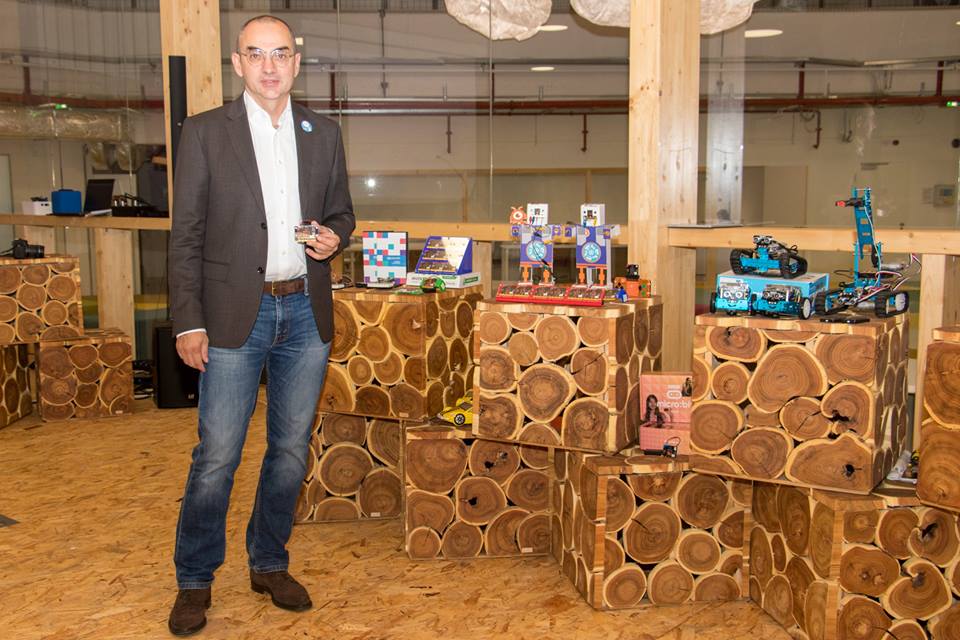
In cooperation with the Ministry of Science and Education, the Croatian Employers Association, CARNet and other partners through the ProMikro project IRIM, programming in the 6th grade with over 35,000 donated micro:bits was introducted, was well as content development and education of over 2000 teachers.
''There is a strong interest in Croatian educational system for the introduction of STEM competencies, especially in relation to technology. This can be seen in advanced activities, for example, through the ever-growing interest in the Croatian Makers Robotics League, which now includes over 550 educational institutions, but equally at the widest level of digital competence development, i.e. programming and the development of digital literacy, through STEM Revolution projects and ProMikro. As a follow up to these projects, research conducted among school principals and teachers shows a great interest in expanding these activities,'' Nenad Bakic said at the presentation of the project which will be implemented in cooperation with Rotary Club Zagreb Center and Rotary District 1913 – Croatia.

There are currently approximately 2000 schools in Croatia which have pupils in grades 1 - 4, and all will be invited to voluntarily participate in the project. Expectations are that approximately half of the schools will apply, taking into account the interest of the school and the teachers, as well as the availability of other equipment such as computers, tablets, or smartphones, which are used to program micro:bits.
Programming will be introduced for a particular subject and also across the spectrum of school subjects. Micro:bit is a teaching tool for delivering existing content in a digitally creative way so there is no need to change the curriculum.
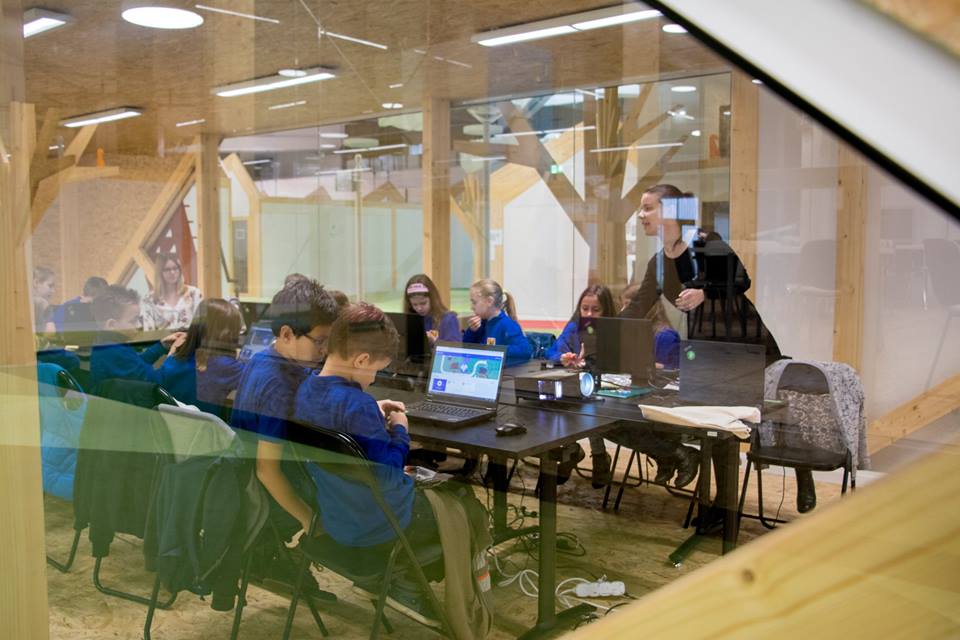
After the national STEM project, the micro:bit has established itself as a globally unique and leading computing platform, with national projects, for example in Denmark (for all 5th grade students, to introduce programming), Singapore and Canada.
As lower grade students rarely have a designated time to use computer labs, micro:bits will be placed in school libraries. In this way, teaching can take place in the library and in the classrooms. The library will allocate additional micro:bits for students to borrow for work at home, Bakic announced.
The project cost is estimated at 5 to 6 million kuna, and initial funding will be provided by IRIM and the Rotary Club Zagreb Center, each with 100,000 kuna, which will secure the purchase of the first micro:bits.

The project will be implemented for a period of 12 or 24 months, depending on the availability of funds and interest of the schools. It is possible to finance it in phases, so schools will receive micro:bits in waves, in the order that have signed up.
IRIM will also fund the development of content for lessons from various subjects, using micro-bits, just as it did for the 6th and 5th grade. Content will be permanently available and upgraded using various channels. IRIM will also educate 1000 - 3000 teachers, just like it previously trained two thousand teachers for the ProMikro project.
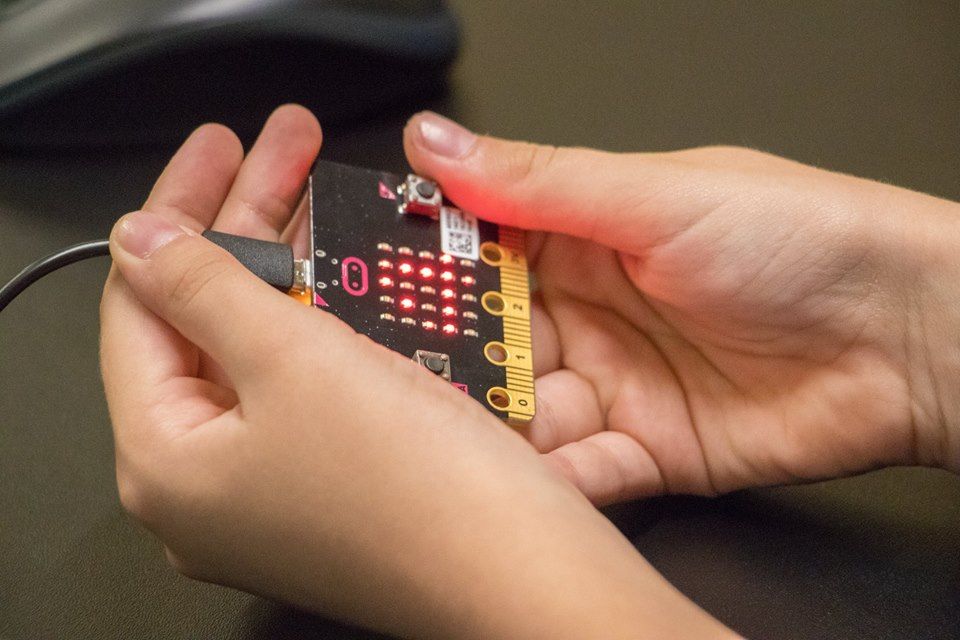
IRIM also provides web site production, collection of applications and communication with schools. Partner organisations joining are: the Croatian Post Office, which will donate the delivery of micro:bits throughout the country, the Bruketa & Žinić & Gray creative agency will supply its services in the project presentation, and the PR agency Communication Laboratory will give support for public relations. BBC micro:bit is an educational and creative tool whose purpose is to inspire a new generation of young people.
It can be used in a variety of ways throughout the curriculum, not just in STEM subjects (science, technology, engineering and mathematics). It can help young people acquire knowledge and skills to develop from digital technology consumers into designers and creators of new tools that will help them improve their learning, solve problems or simply entertain them and allow them to take full advantage of the benefits of life and economy in the 21st century.

Micro:bit is characterised by extremely low prices, low barriers for beginner and advanced use, and a highly rich ecosystem. Click here and here for examples.
The founders of the Micro Foundation are: the BBC, Microsoft, Amazon, Samsung, ARM, the British Council and others.
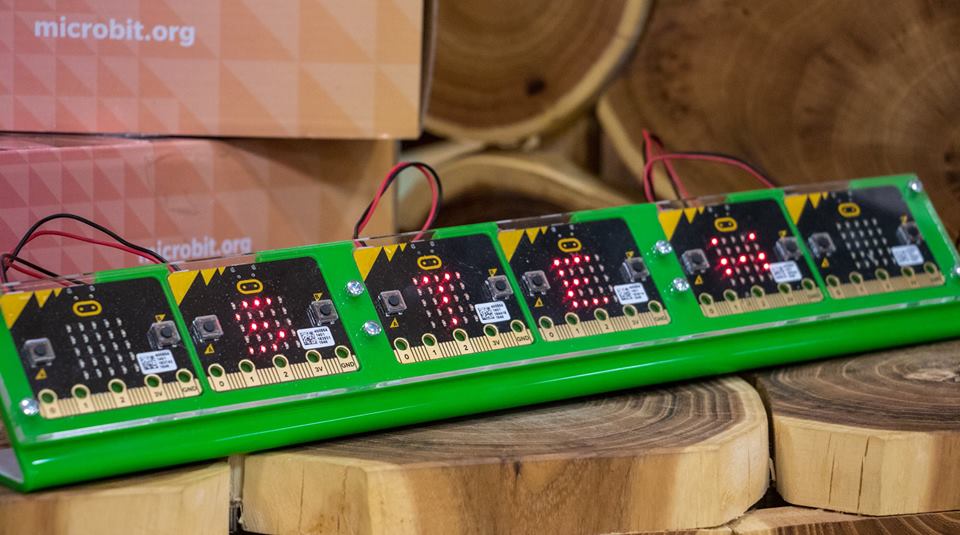
IRIM runs the Croatian Makers program, which includes a number of projects such as: the Croatian Makers Robotics League, STEM Revolution, ProMikro, Internet of Things, STEM Revolution continues - Libraries, STEM Car. Croatian Makers, with over 100,000 children, and over 3,000 educated teachers, is the largest program of its kind in the EU.
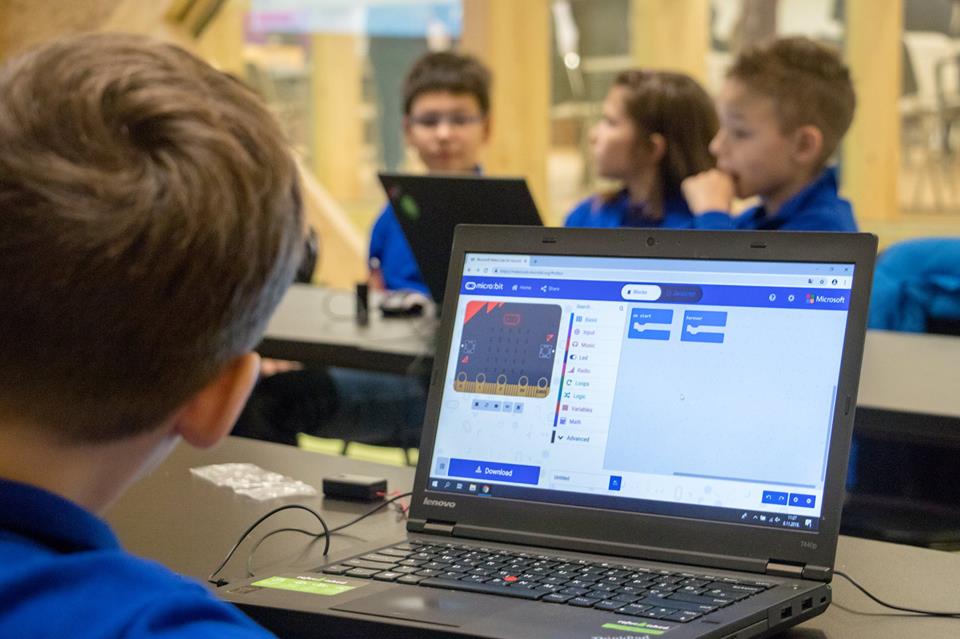
The founders of IRIM are Nenad and Rujana Bakic. You can find more information on Croatian Makers here. Participating schools can apply here.
Want to keep up with more information on the stem revolution in Croatian schools and more information like this? Make sure to follow our Made in Croatia page!


